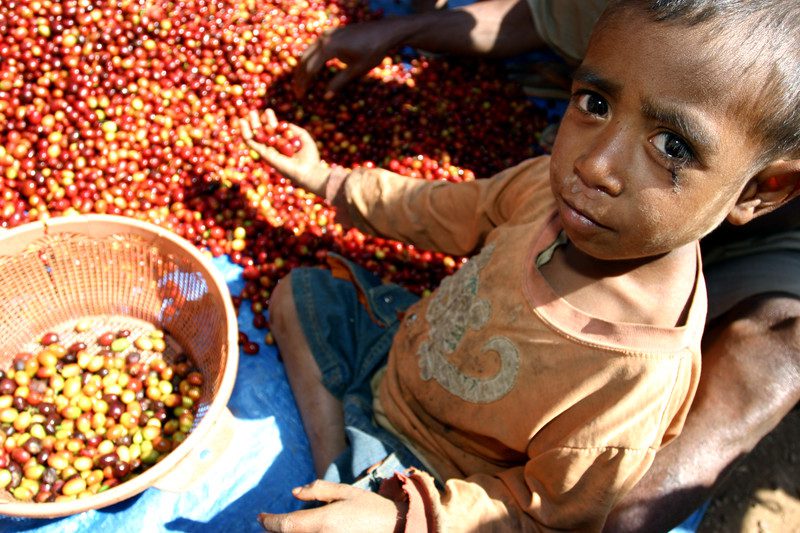What’s stopping fair world trade?
Trade can be a powerful engine for reducing poverty. But rich countries dominate the World Trade Organization (WTO), which is where global trade rules are negotiated. And they set rules under which poor countries continually lose out.
Wealthy nations have double standards too – forcing poorer countries to keep to rules they don’t obey themselves. The result? Trade robs poor people of a proper living and keeps them trapped in poverty.
How the rip-off works
Regional Trade Agreements
Regional Trade Agreements link individual countries or regions – and are a good arrangement between equal partners with similar-sized economies.
But what happens with a trade agreement between a rich economy and a poor one?
The richer, stronger economy always wins – particularly in Free Trade Agreements (FTAs), which often remove the poor country’s right to use tariffs and quotas to protect its own industries and farms from cheap imports.
Peru’s 28,000 cotton farmers now face ruin because of a proposed FTA with the US.
Should it come into force, Peru’s government will have to remove taxes on imports – and massively subsidised American cotton will flood their market.
Dumping cheap produce cripples small farmers
Together, the United States and European Union spend US$1 billion a day subsidising their farmers. When these farmers produce too much, the extra produce is sold to developing countries at vastly reduced prices. This then pushes down the price of local produce, so poor farmers can’t compete.
Mozambique’s sugar industry, for instance, has been crippled in this way. Thousands of tonnes of cheap EU beet sugar were being dumped in developing countries, denying small farmers a fair chance.
Market rules favour the rich
Rich countries limit and control poor countries’ share of the world market by slapping high taxes on imported manufactured goods. As a result, many poor countries can only afford to export raw materials, which give far lower returns than finished products.
For example, the rich world buys cheap cocoa and turns it into expensive chocolate – reaping all of the profit. At the same time, poor countries are threatened with having loans withheld unless they open their markets to rich countries’ exports.
Development banks don’t always work for the poor
The World Trade Organization’s influence on international trade often steals the limelight but development banks play a critical role behind-the-scenes.
These banks, including the World Bank and Asian Development Bank, shape the trade and investment conditions faced by developing countries, as well as the trade and investment policies they adopt. And sometimes, the new trading economies they help to create can have complex and negative impacts on poor communities, particularly communities that depend on the land to make a living.
Labour rights matter
Globalisation and trade have drawn millions of people in developing countries into paid work. Their labour is contributing to rising global prosperity and to the profits of some of the world’s most powerful companies. But many of these workers are still living in poverty even though they have paid jobs.
For example, workers producing for companies like Nike, adidas, Puma, Asics, FILA, Mizuno, New Balance and Umbro, often endure low wages and long hours in sweatshop conditions.
We’re part of a global campaign to persuade companies and governments to respect workers’ rights.
